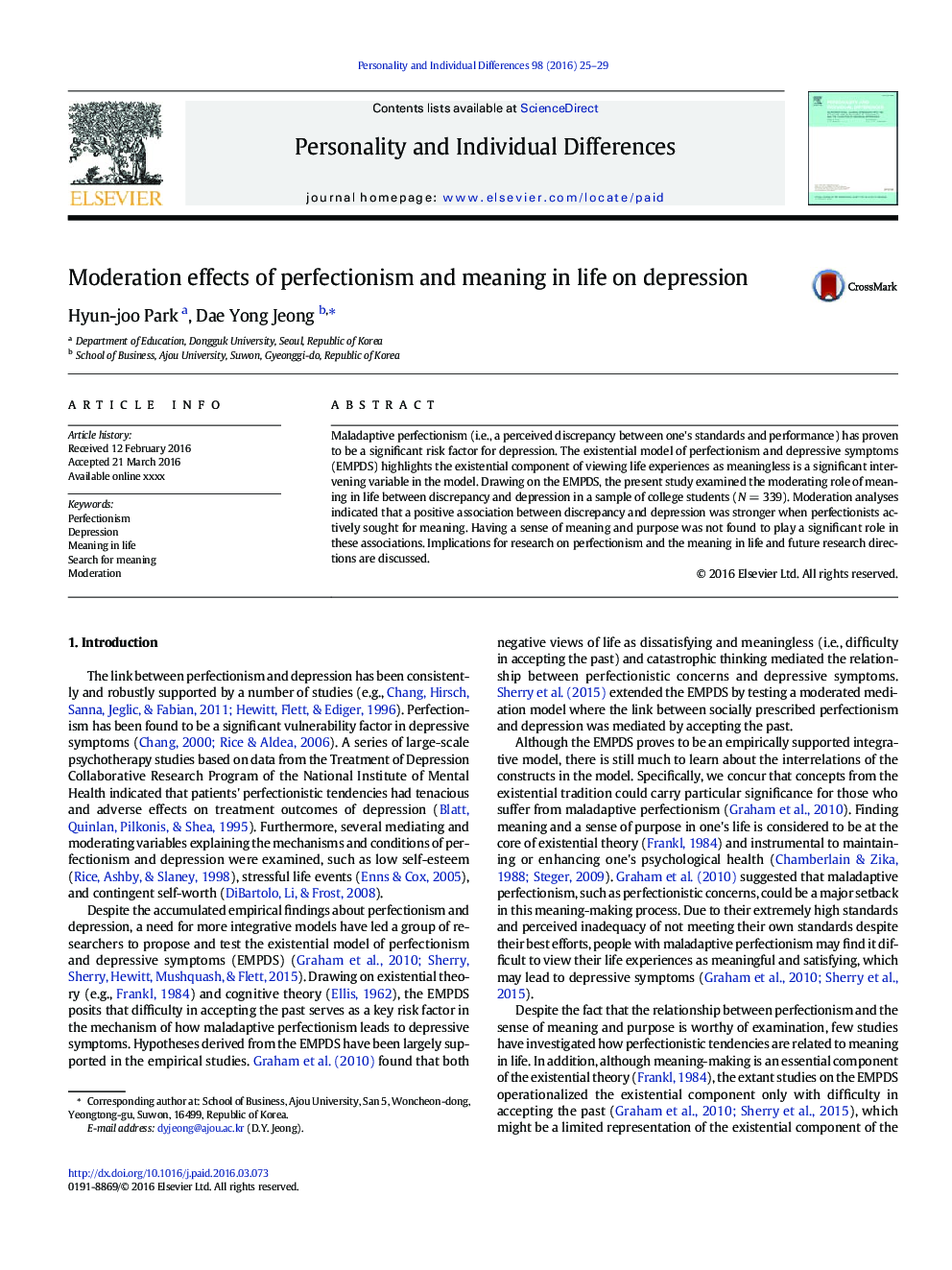| Article ID | Journal | Published Year | Pages | File Type |
|---|---|---|---|---|
| 7249888 | Personality and Individual Differences | 2016 | 5 Pages |
Abstract
Maladaptive perfectionism (i.e., a perceived discrepancy between one's standards and performance) has proven to be a significant risk factor for depression. The existential model of perfectionism and depressive symptoms (EMPDS) highlights the existential component of viewing life experiences as meaningless is a significant intervening variable in the model. Drawing on the EMPDS, the present study examined the moderating role of meaning in life between discrepancy and depression in a sample of college students (NÂ =Â 339). Moderation analyses indicated that a positive association between discrepancy and depression was stronger when perfectionists actively sought for meaning. Having a sense of meaning and purpose was not found to play a significant role in these associations. Implications for research on perfectionism and the meaning in life and future research directions are discussed.
Related Topics
Life Sciences
Neuroscience
Behavioral Neuroscience
Authors
Hyun-joo Park, Dae Yong Jeong,
